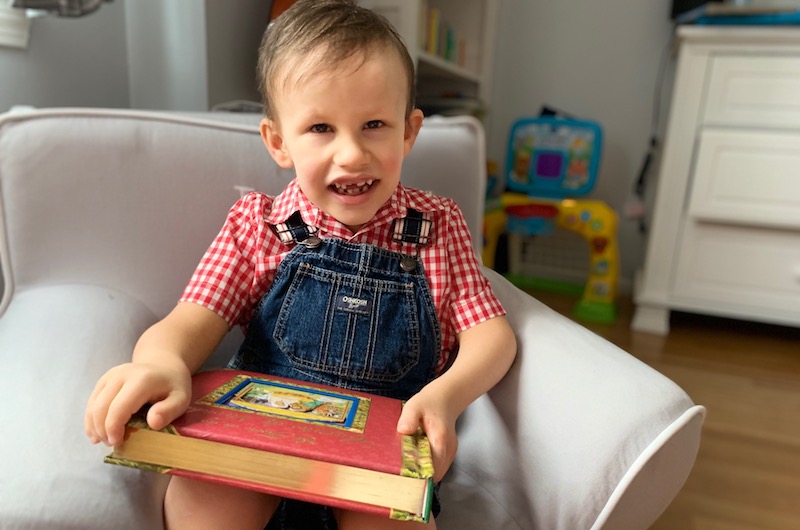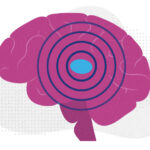COVID-19 and IEPs: Education for children with special needs

When Massachusetts shut down its public schools to prevent the spread of COVID-19, educators faced a huge challenge. With little time to prepare, school districts had to redesign classroom lesson plans for close to a million students. The interrupted school year has been especially hard on kids with individualized education programs (IEPs).
An IEP is a special education plan designed to meet a child’s specific learning needs. IEPs provide personalized education, services, and support for children with disabilities. Each IEP is designed around a child’s specific needs. By law, public schools are required to provide students with disabilities free and appropriate education.
The impact of COVID-19 on children with IEPs
It took teachers extra time to convert students’ IEP objectives into at-home lessons. From a practical perspective, the delay makes sense. “Schools had to customize learning for each individual child with an IEP,” says Kelly Federico, a patient and family educator with the Developmental Medicine Center. While they waited, however, many children lost skills they’d worked hard to achieve.
Esterlina MacInnes, Family Partnerships coordinator for Spanish-speaking families, works with parents whose children have IEPs. “By law, schools have to provide some kind of support for children with disabilities,” she says. “It’s impossible to provide what’s in an IEP remotely. But schools have to provide some kind of support for kids with special needs.”
MacInnes speaks from both professional and personal experience. Her 8-year-old son, Ian, has intellectual disability and autism. Before the COVID-19 outbreak, he had an IEP and received applied behavior analysis (ABA) therapy at home. Both were pivotal to his development and communication skills. Like many of the parents she works with, MacInnes has seen her son regress since schools closed.
IEPs during COVID-19: Bringing the classroom home
After taking time to regroup, school districts are now offering IEP services in a variety of ways. Many schools are sending parents exercises they can do with their children at home. Some teachers are interacting with kids by videoconference while others are connecting by phone, email, or social apps like WhatsApp.

Ian’s school sends exercises and eBooks for him each week. He receives ABA services by videoconference and in April, his IEP teacher started 15-minute Zoom calls. When he saw his teacher and classmates on the first call, he danced around the living room with joy.
But virtual learning is hard for a lot of kids with disabilities. Sitting in front of a computer for long stretches is no fun for adults, or for kids. “Most children are used to having breaks throughout the day,” says Katelin Timmons, a patient and family educator with the Autism Spectrum Center. She recommends that parents ask their child’s teacher for a schedule of a typical school day. “If your child is used to five minutes of learning followed by five minutes of play, include breaks in your child’s new routine.”
Tips for parents whose children have IEPs during COVID-19
Communicate with your child’s school.
Federico advises parents to reach out to the school every week. “Set up a schedule of regular check-ins with your child’s teacher.” You might ask what the teacher did at school to make learning easier. Sometimes, you may just ask for feedback on how you’re doing. “It really helps to be in regular contact with the school.”
The Massachusetts Advocates for Children has created a sample letter to help parents reach out to schools. You can customize the letter for your child’s situation.
Ask about telehealth therapy options.
Your child’s speech, occupational, or physical therapist may have at-home activities your child can do. Ask your child’s school if you can set up time to talk with them.
Speak up if you don’t have a computer.
If you don’t have access to a computer or the internet, your school district can mail printed materials to your home. Some districts are providing computers and free Wi-Fi. Ask your child’s school what options are available.
Keep a record.
Document your child’s at-home learning. Make a list of materials the school has provided and the format (video, online exercise, printed material.) Include dates of each lesson and your child’s reaction. If your child has regressed, make a note of it. “That record may help you get more services to compensate for what your child has missed while schools were closed,” says MacInnes.
Structure your days.
MacInnes and her husband maintain a predictable morning schedule with Ian. Each morning after breakfast, she and Ian go over his lessons. “After that, I have to work. But we start each day with structure.”
Go easy on yourself.
Be realistic about what you can achieve at home. Your child might not pay attention to their exercises for as long as you’d like. “Parents can’t do everything,” says Timmons. “Consider any you do as a success.”
A silver lining? More time to develop skills
Each year, schools re-assess each IEP student’s needs and skills. Your child’s IEP will enable educators to base their learning goals and objectives on your child’s stage of development. Your child may get an extra year to work on goals they didn’t reach this year. Federico suggests treating this as an opportunity to reinforce skills they may have lost during COVID-19. “If your child was able to learn a skill once, they can learn it again.”
Related
FAQs about IEPs and educating children at home during the COVID-19 crisis
Tips for getting through the rest of this school year — and possibly next
Preparing your child with autism for a hospital visit during COVID-19
Get more answers about Boston Children’s response to COVID-19.
Related Posts :
-

New research shows caregiver instability affects development
According to some estimates, more than 100 million children around the world experience separations from their caregiver every year. Previous research — ...
-

The thalamus: A potential therapeutic target for neurodevelopmental disorders
Years ago, as a neurology resident, Chinfei Chen, MD, PhD, cared for a 20-year-old woman who had experienced a very ...
-

Model enables study of age-specific responses to COVID mRNA vaccines in a dish
mRNA vaccines clearly saved lives during the COVID-19 pandemic, but several studies suggest that older people had a somewhat reduced ...
-

Delving into the causes of attention deficits: Childhood adversity, lost sleep, and dopamine
New research on the effects of adversity in childhood ties together stress, sleep loss, and attention deficits later in life. ...





